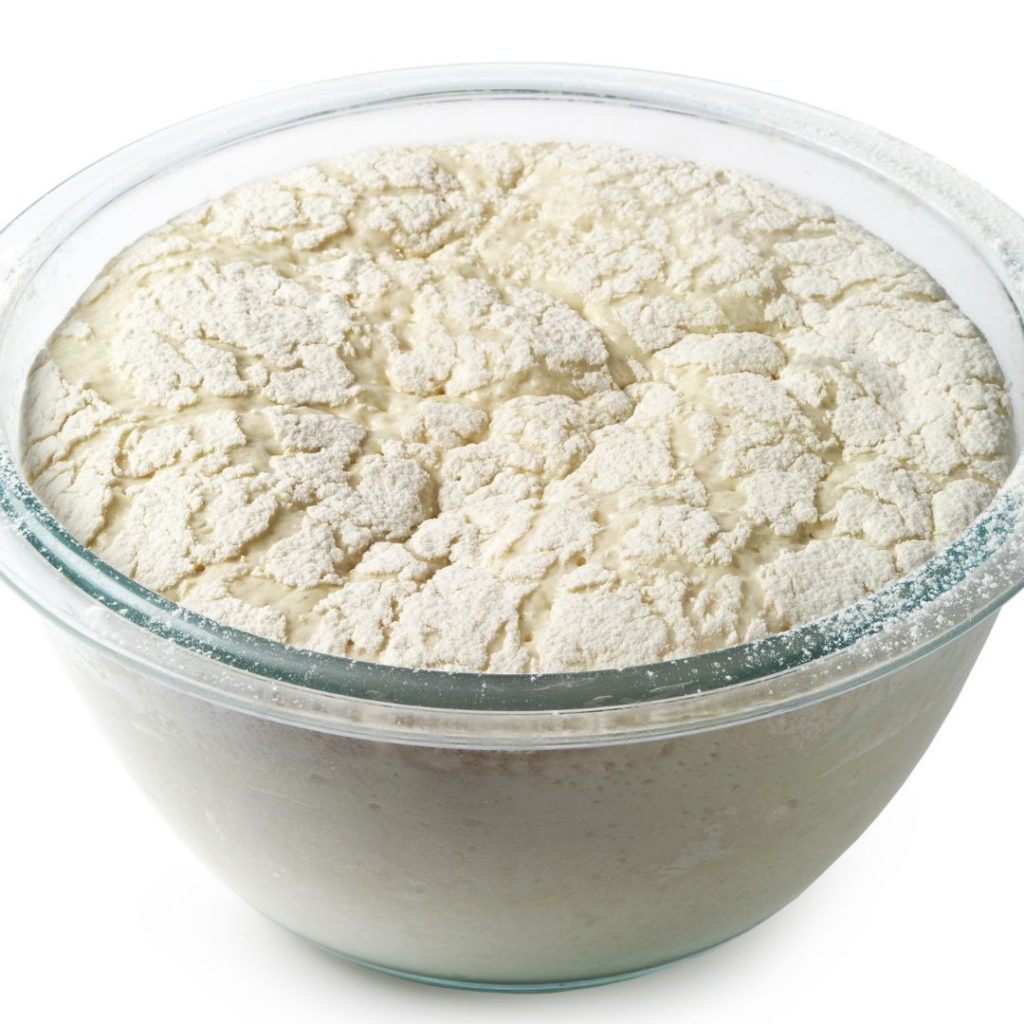What do Yorkies usually die from?
As sad as this question may be, we Yorkie owners have to consider it at some point in our pets’ lives. Thankfully, this hardy breed does not have too many health issues.
In general, Yorkies could die from respiratory illnesses, accidents/trauma, certain cancers, and also heart or liver-related problems.
Read on to find out:
- What do Yorkies usually die from
- What is the life expectancy of a Yorkie?
- What are common health problems in Yorkie puppies and adult dogs?
- Which foods are toxic to Yorkies?
- How to increase the lifespan of your Yorkie – Some tips!
- FAQs
Also Read: When Do Yorkies Stop Teething
What Do Yorkies Usually Die From?

Yorkies, overall, are a hale and hardy breed but even healthy little dogs are prone to periodically feeling sick or under the weather.
However, since these are small dogs, you must be extra-vigilant when your little guy or girl is not feel well.
Even a small indigestion can cause your little Yorkie to lose a lot of weight and its blood sugar levels could fluctuate dangerously. Moreover, they can easily become dehydrated which can complicate even a minor health issue.
In general, most Yorkies die from accidents each year. They are small dogs and if you have not secured your yard, they could dash out into the traffic. They are prone to trauma and injuries due to low body weight.
Many Yorkies also die from heart disease. Like most small breeds, Yorkies are prone to heart-related issues and specifically, problems with the heart valve – the valves leading to the heart do not open and close properly leading to circulatory issues.
Yorkies also have high mortality rates when they contract respiratory illnesses. Nearly 16.1% of Yorkies die from respiratory issues stemming from collapsed trachea, brachycephalic airway syndrome, etc.
Also Read: What is The Average Lifespan of a Yorkie
What is the Life Expectancy of a Yorkshire Terrier?
A Yorkshire terrier has a life expectancy of 12 to 15 years with median or average life span of 13.5 years.
Female Yorkies live slightly longer than males by approximately 1.5 years.
Later on in this guide, we will give you some important tips for prolonging your Yorkie’s life.
In general, you must be mindful about accidents and trauma. Preventing trauma is the most important thing every Yorkie owner needs to be vigilant about.
It is also a good idea to spay/neuter your pet at an early age as it helps calm the dogs down and prevents escaping and running away.
What Are Common Health Problems in Yorkie Puppies and Adults?

Your Yorkie’s health is the most important thing you need to be diligent about preserving. It is your responsibility to keep it at an optimum state.
While no pet parent wants to think about it, it is important to be mindful of possible medical issues in pets so you can take preventative measures.
You can also educate yourself about the symptoms of the onset of different diseases affecting this breed.
This way, you can seek immediate medical help and prevent minor symptoms from developing into something dangerous.
Here are some common health issues in Yorkie puppies and adults
Leptospirosis
This deadly disease comes from rodents. Your Yorkie might catch it from puddles or mud where an infected rodent has defecated or urinated.
The symptoms of the disease are: shivering, fever, dehydration, vomiting, and diarrhea.
There is a vaccine available for Leptospirosis but there are many different strains of the disease, so your Yorkie is always susceptible to it. However, vaccinating can greatly reduce the symptoms and severity of the disease if infected.
Also Read: Yorkie Vaccine Schedule
Respiratory issues
As stated earlier, nearly 16.1% Yorkie deaths can be attributed to respiratory illness. Some common respiratory issues in the Yorkie breed are pulmonary fibrosis, collapsed trachea, brachycephalic syndrome, etc.
In senior Yorkies, gradual degeneration of the lungs can cause bronchitis.
Cancer
Some cancers are more common in Yorkshire terriers including cancers of the mammary gland, skin or bones, lymphoma, and soft tissue sarcoma. You must regularly inspect your pet for lumps and bumps so you can have it treated right away.
PPS or Portosystemic shunts
PPS is a congenital disorder also known as liver shunt. It inhibits blood flowing into the liver causing liver failure, even death.
Symptoms of PPS include disorientation, staring into space, head pressing, seizures, drinking too much water, urinating frequently, and even vomiting and diarrhea.
It can be treated with medicines but, in some case, surgery may be required.
Infections
Infections in Yorkshire terriers can be bacterial or viral. Common infections include Parvovrius, parainfluenza, rabies, and distemper. Thankfully, most of these can be prevented through vaccination.
Dental disease
Like most small breeds, Yorkies can suffer from dental issues. These can eventually lead to weakened heart, liver, kidneys, and joints.
That is why you must pay a great deal of attention to your Yorkie’s teeth and gums. Regular brushing can prevent degeneration of gums and dental caries.
Cushing’s disease
This is also a genetic predisposition in Yorkies. It causes the adrenal glands to produce too much of steroid hormones.
Symptoms of Cushing’s disease include overeating, drinking and urinating too much, low activity levels, obesity, thin hair, and hair loss.
Diabetes
Diabetes is very common in Yorkie puppies and adults. In affected dogs, the body is unable to regulate blood sugar levels. This is a serious condition that may even require daily injections of insulin.
Symptoms of diabetes in Yorkies include increased appetite, drinking too much water, frequent urination, and weight loss.
While the condition is treatable, you will need to monitor your Yorkie daily and also need to spend time, money and effort on its care. However, life expectancy of affected dogs is same as normal dogs.
Hemorrhagic gastro enteritis
In toy dog breeds like Yorkies, HGE or hemorrhagic gastro is a fatal condition. It can cause severe bleeding, diarrhea, and vomiting, or dehydration. Many Yorkies die from hemorrhagic gastro because they do not receive prompt treatment.
What Foods are Toxic to Yorkies?
Our Yorkies have the cutest eyes which they can use for begging for food and table scraps. However, as tempting as it might be to feed our Yorkies with the foods we eat, we should never do so.
Many human foods are toxic to dogs and can even cause death. Here are some of the most toxic foods to never feed a Yorkshire terrier.
Chocolate, coffee, caffeine

These foods can immediately trigger symptoms like vomiting, diarrhea, panting, heart problems, tremors, seizures, and death.
Chocolate, especially dark and baking chocolate contains theobromine which is a toxin for dogs. If your Yorkie ingests even moderate amount of chocolate, please rush it to the vet right away.
Alcohol

Thankfully, most dogs do not like the taste of beer, wine, and whiskey to drink enough to cause toxicity. So, even if your pet has accidentally licked a few drops of these beverages, it should not be an issue. However, in larger quantities, it can cause vomiting and dehydration in small dogs like Yorkies.
Macadamia nuts
Even a couple of these nuts can cause weakness, tremors, and fever in dogs. If your Yorkie has had a few of these nuts, rush it to the emergency room. Your vet might have to induce vomiting in your pet.
Grapes and raisins

Grapes and raisins contain a fatal toxin that can cause kidney failure in small dogs. If your pet has ingested several grapes or raisins, take it to the vet to prevent kidney problems.
Yeast dough

Yeast dough enters your pet’s stomach and can swell up there causing serious gas, bloating, and stomach ache. In a small dog breed like the Yorkies, even a small amount of yeast dough can end up being fatal.
Xylitol
Xylitol is a sweetener used in many ready-to-eat foods like baked goods, cakes, cookies, candy, etc. In toy dogs like the Yorkies, a small stick of xylitol based gum can immediately cause hypoglycemia or low blood sugar. In larger amounts, the ingredient can cause liver failure. Rush your pet to the vet to have its stomach pumped out.
Onions, garlic

These vegetables and herbs can cause nausea and vomiting in small dog breeds like Yorkies. In larger quantities, they can irritate red blood cells. Some pet parents do like to include small amounts of crushed garlic in their dog’s meals for flea control, but it is best to speak to your vet before doing so.
Also Read: 30 Toxic Foods To Never Feed Dogs
How to Increase the Lifespan of your Yorkie – Some Tips

Here are some tips that can go a long way in keeping your Yorkie healthy and happy for years to come:
Keep it at a healthy weight
Yorkies can quickly gain weight if they are over-fed and led to live sedentary lifestyles.
Obesity can lead to many health issues including cancers and that is why you must maintain your Yorkie at an optimal weight. Standard-sized Yorkies should not weigh over 7lb.
You must constantly monitor your pet’s weight and if it is gaining weight then cut back on its food and increase its activity levels.
Also Read: Best Dog Food for Yorkie
Brush its teeth
As stated earlier, oral disease in dogs is linked to heart disease, kidney and liver issues as well.
So, brush your pet’s teeth and monitor its oral health from time to time. Also, take your pet for regular professional dental cleaning.
Also read: Are Dentastix Good for Dogs
Keep it mentally stimulated
In addition to physical fitness, your Yorkie should also be kept mentally fit and alert as it ages. So provide it with some food puzzles or toys that will keep it stimulated, playful, occupied, and happy.
Groom it regularly
Grooming can help you catch many problems before they escalate, including fleas, ticks, and lumps and bumps. If you find these, do take immediate remedial action to prevent them from worsening.
Also Read: Best Brush for Yorkies
Take it for regular vet checkups
Regular vet checkups can also help detect health issues and prevent them from worsening. This can go a long way in keeping your Yorkshire terrier healthy for several years to come.
FAQs on What Do Yorkies Usually Die From?
1. Why do Yorkies turn gray?
Yorkies have a ‘graying’ gene that causes them to change their normal black and tan color into whitish gray color. The gene reduces the production of eumelanin which is responsible for their otherwise black-tan coat.
2. How can I tell if my Yorkie is in pain?
Yorkies can be quite vocal about their pain – they might whine, groan, or cry out. A Yorkie in pain will not have its usual cheerful disposition. It might sleep more than usual, or might be very lethargic.
Some Yorkies that are in pain also hide under the bed or refuse to be touched or petted.
3. How can I tell if my Yorkie is dying?
When any dog is about to die, it might refuse food, hide or detach itself from its family members, and spend more time sleeping. It might not even go on walks.
A dying dog might also have shallow breathing and the time between its inhalation and exhalation will be longer.
4. Is licking a sign of pain in dogs?
Some dogs do tend to lick certain part excessively when it is itching or hurting. However, licking is more often a sign of irritation and itchiness than pain.
5. Is wet or dry food better for my Yorkie?
Dry dog food is better for Yorkies as the crunchy kibble helps prevent tartar and plaque which, in turn, could keep oral or dental issues at bay.
If your Yorkie prefers canned or wet food, you can mix it with some kibble for a healthy and tasty balance.
Conclusion – What do Yorkies Usually Die From?

What do Yorkies usually die from?
Yorkies could die trauma, accidents, injuries, respiratory illness, heart disease, liver problems, and even certain cancers.
The average or median life expectancy of the breed is about 13.5 years which you can easily extend to 14 or 15 years through good diet, daily exercise, regular dental cleaning, and vet visits.
We hope this guide helps you keep your Yorkie healthy and happy for years to come.



